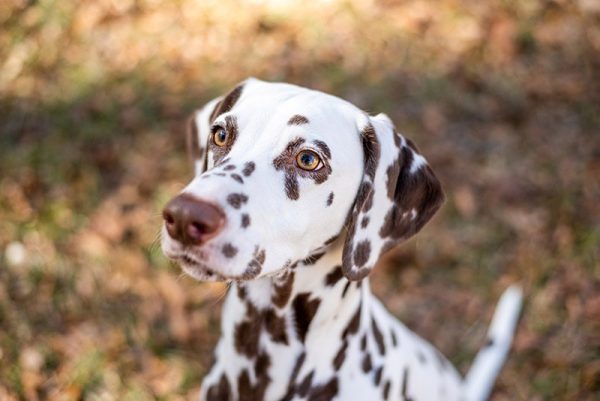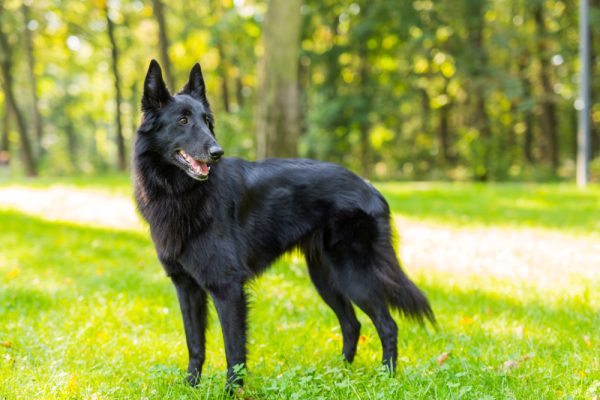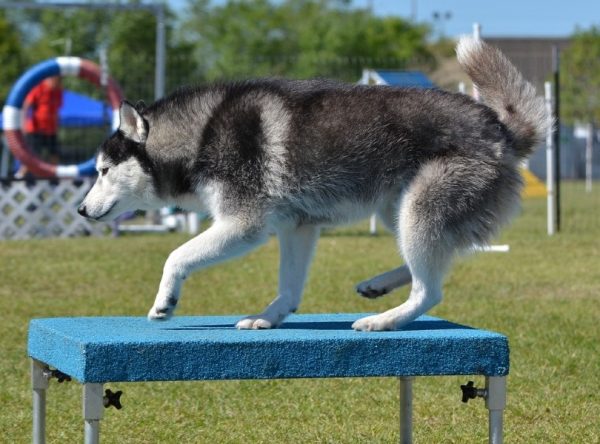Boston Terriers can make excellent family pets. They are an affectionate, lively breed, and they respond well to mental stimulation so they can easily be trained.
They are a brachycephalic breed. This means they have a short skull shape which gives them the appearance of a flat face, and there are health and welfare issues associated with these breeds. Anatomically, they are at a disadvantage compared to dogs with longer noses. They may experience breathing difficulties, they can overheat, they can have issues with their eyes, they struggle to give birth naturally, and they may have skin and dental problems, to name a few issues. They often require extra veterinary care and corrective surgeries to improve their quality of life.
If you are thinking about buying a Boston Terrier or you have one as a pet, you will want to know the details of the common health issues they encounter. This article will discuss 13 common health issues Boston Terriers suffer from and give you tips on how to spot these issues and potential ways to avoid, prevent, or treat them. Read on to find out more.

Top 13 Boston Terrier Health Issues
1. Brachycephalic Airway Syndrome
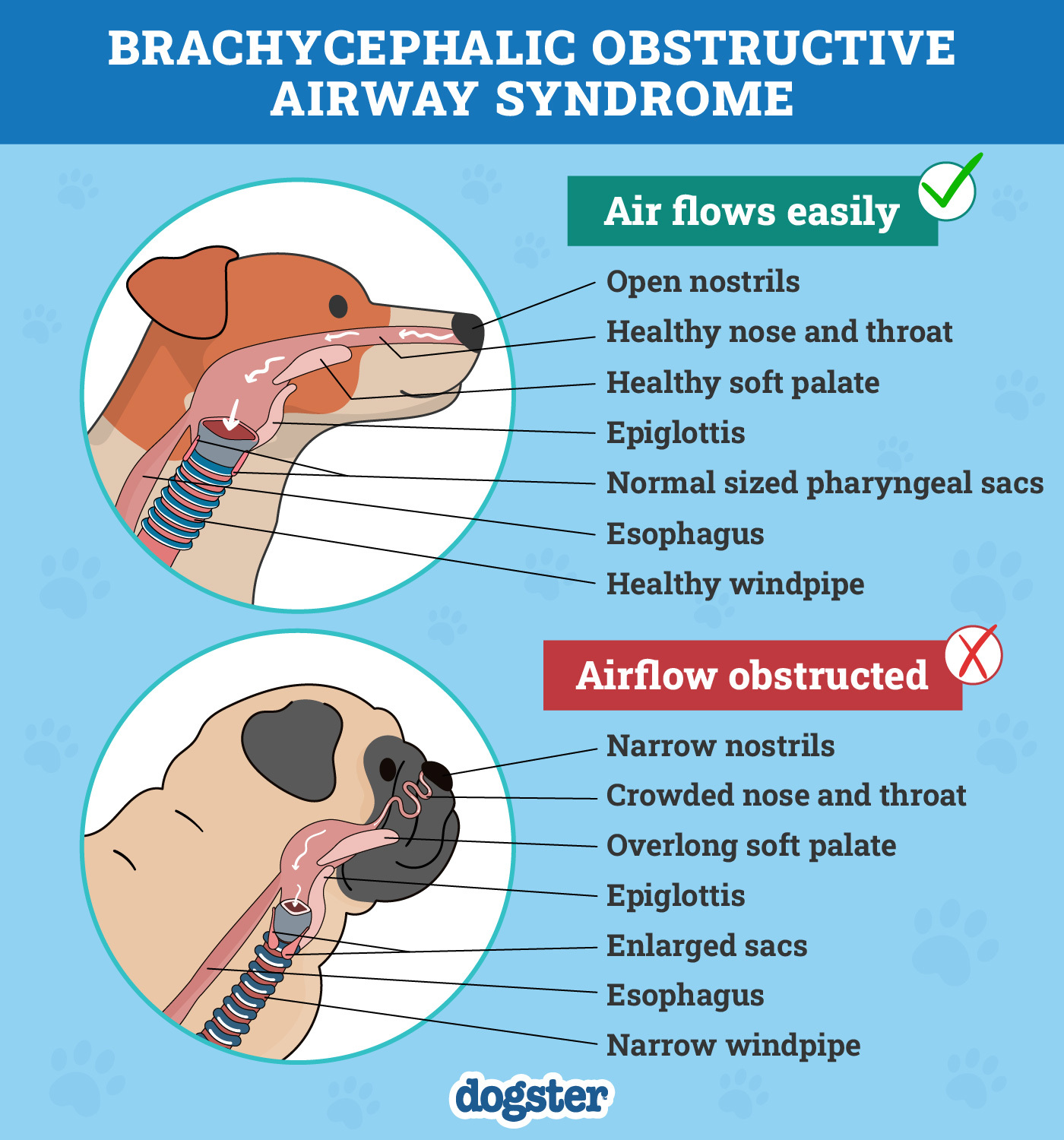
This problem refers to upper airway abnormalities that contribute to breathing difficulty. It can be a complex issue that is debilitating for dogs.
- Stenotic Nares: Dogs have very small and narrow nostrils. This means there is less space for the air to move in and out therefore less air is drawn in for each breath.
- Elongated Soft Palate: The soft part of the roof of the mouth is too long for the size of the mouth. It flops over the entrance to the trachea at the back of the mouth obstructing airflow.
- Everted Laryngeal Saccules: These are tiny sacs that sit inside the larynx, they turn inside out due to the increased pressure caused by other anatomical deformities associated with the disorder. When they are everted, they obstruct the flow of air too.
- Laryngeal Collapse: Due to other aspects of brachycephalic airway syndrome, there is chronic stress placed on the larynx. This, over time, causes laryngeal collapse as it is unable to open as wide as is required. This restricts airflow.
- Hypoplastic Trachea: This is where the trachea is smaller and thinner than usual so less air can pass through in each breath.
All of these anatomical changes contribute to the increased respiratory noises associated with brachycephalic breeds such as grunting, snorting, and snoring. Usually, the only way to help a dog suffering from these issues is surgery. There are surgeries to widen the nostrils, shorten the soft palate, and remove the laryngeal saccules, however, due to the nature of the problem, it is a surgery that carries high risk.
Other management options include weight loss, walking with a harness as opposed to a lead, preventing them from overheating, and use of medication for short-term relief.
If you are concerned about the health and well-being of your pet, seek veterinary advice for the best course of action.
If you need to speak with a vet but can't get to one, head over to PangoVet. It's our online service where you can talk to a vet online and get the advice you need for your pet — all at an affordable price!

2. Luxating Patella
A luxating patella is a condition where the kneecap slips out of its usual position in the thigh bone. When the kneecap slips out of the groove, it prevents the normal movement of the knee and stops it from bending. This causes the dog to limp and move awkwardly. The motion of the kneecap sliding over the bone causes inflammation, and pain and eventually leads to arthritic changes. Luxating patella often affects both knees and the condition is graded 1–4 according to severity. Owners often report a characteristic hop or skip when their dog is moving.
Management involves physiotherapy, pain relief, weight control, and restriction of exercise. More severe cases require surgical correction. This usually involves realigning the insertion of the kneecap tendon to prevent the kneecap from moving and performing a recession sulcoplasty. This is where the groove that the patella sits in is deepened. Sometimes the thigh bone is bent out of shape, and this can be straightened out as well under the same general anesthetic.
Luxating patellas can be a hereditary problem, so always check with your breeder before purchasing.
3. Corneal Ulceration
Boston Terriers’ eyes protrude more than usual. This predisposes them to corneal ulceration. This occurs when damage to the eyeballs is sustained. This can be from self-trauma, playing rough with other dogs, actual dog fights, or scratches from exploring in bushes. This is an extremely painful condition, and if left untreated, it can turn into a melting ulcer and your dog may lose its eyesight. Your dog’s eye will appear red and swollen and they may hold it shut. There may also be an infection present, in which case you may see discharge.
Mild cases can be treated with drops. More severe cases may require antibodies and surgical debridement to stimulate healing.
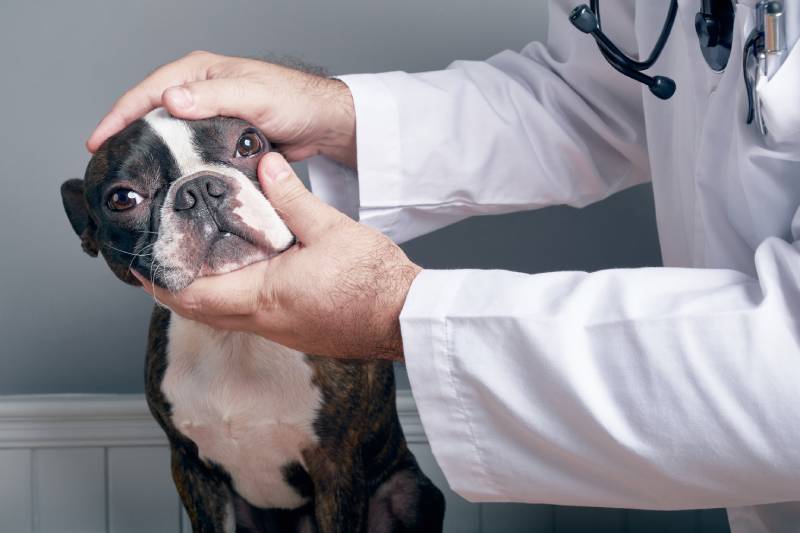
4. Cataracts
Boston Terriers commonly suffer from cataracts. They can inherit juvenile cataracts which can start to develop as young as 8 weeks of age. Cataracts are opacities over the lens that block light from reaching the retina. Cataracts can lead to complete loss of sight. Surgical removal can be performed.
5. Glaucoma
Glaucoma is a condition where the drainage system of the eye doesn’t function properly. Fluid builds up causing the pressure inside the eye to increase, damaging the surrounding structures including the optic nerve. It is an excruciating condition and symptoms include a blue cloud over the eye, squinting, watery eyes, inflamed conjunctiva, dilated pupils, pain, and sudden blindness. There is no cure for glaucoma, but it can be managed to some extent with topical eye drops and other medications.
6. Cherry Eye
Cherry eye is another common eye issue for Boston Terriers due to the anatomy of their faces and the protrusion of their eyes. Cherry eye occurs when the gland of the third eyelid prolapses. The prolapsed gland sits over the eye in the corner as a pink soft tissue swelling. It is important to arrange an appointment with your vet if you notice signs of a cherry eye as it can cause damage to the eye and cause your dog distress.
Treatment for cherry eye involves surgical replacement of the gland.

7. Hemivertebrae
Boston Terriers have a distinct corkscrew tail shape. This is an abnormality in their development which is called hemivertebrae and causes irregularly shaped vertebrae. It can occur anywhere along the spinal cord. Depending on the location of the misshapen vertebrae, clinical signs can vary. Some have nerve issues, some are incontinent, and some lose the use of limbs.
Treatment is required if the vertebrae are compressing on the spinal cord. Mild cases require strict rest and anti-inflammatory medication. More severe cases may require a surgical procedure called a hemilaminectomy, which attempts to relieve the pressure on the spinal cord.
8. Skin Allergies
Boston Terriers are prone to suffering from skin allergies. They usually react to something in their diet or something that they come into contact with in their environment. They can get rashes, scabs, crusting, and scaling, and can be extremely itchy. Lots of dogs experience ear infections. There are many different types of treatment, some treat the signs, such as steroids, and others treat the underlying cause, such as immunomodulatory therapy. Sometimes a change in diet is advised. Your vet will be able to discuss all suitable options with you.
If you need to speak with a vet but can't get to one, head over to PangoVet. It's our online service where you can talk to a vet online and get the advice you need for your pet — all at an affordable price!
9. Epilepsy
Sadly, Boston Terriers are predisposed to epilepsy. The first clinical sign usually seen is seizure activity. This may look like sudden jerking movements with or without loss of consciousness, twitching, collapse, chomping at the air, or frothing at the mouth. Boston Terriers are known to experience idiopathic epilepsy, in which there is no obvious underlying cause identified and it is thought to be a genetic predisposition. They are also known to experience structural epilepsy, which is thought to be associated with an underlying condition in the brain responsible for the seizures. This can be from cancer or inflammation.
Treatment can be decided when the underlying cause is identified. Anti-seizure medication can be prescribed, or surgery may be indicated.

10. Hearing Problems
Deafness is another hereditary problem for Boston Terriers. It may be difficult to assess partial deafness but if your dog cannot hear anything they will not respond to you calling them or to any noises made. If you suspect your dog is having trouble hearing, book an appointment with your vet as they will need to rule out things like ear infections before testing your dog’s hearing. If your dog is deaf, there is no cure, unfortunately. Reputable breeders will test for deafness and other genetic disorders.
11. Entropion
Another common eye issue seen in Boston Terriers is entropion. This occurs when the eyelids fold inwards, allowing for eyelashes to rub on the surface of the eye. This is a very painful and irritating condition. Signs include watery discharge, squinting, excessive blinking, pain, and redness of the eye. It is possible to rectify the problem with surgery.
12. Keratoconjunctivitis Sicca (Dry Eye)
Boston Terriers are prone to suffering from keratoconjunctivitis sicca due to the protrusion of the globe of their eyes. This condition occurs as the dog doesn’t produce enough tears so the surface of the eye dries out. Signs include dullness of the eyes, thick and sticky discharge, and squinting and blinking. This condition can be managed using topical drops which need to be administered daily.

13. Skin Tumors
Boston Terriers are known to suffer from specific types of skin cancers. They are more prone to developing mast cell tumors, melanomas, and histiocytomas. They can all appear as lumps or masses on your dog. If you notice a lump on your dog’s skin, arrange to see your vet to have it checked out. Your vet will be able to take samples and find out exactly which cells are present, then decide which treatment is necessary.
Some tumors, such as histiocytomas, can resolve on their own, and others require extensive surgery to remove them and ensure good margins around the tumor are obtained.

Final Thoughts
Boston Terriers make fantastic pets. They usually live healthy lives, however, some anatomical traits predispose them to certain health issues. Due to the fact they are brachycephalic dogs, they have short, flat faces and the orbits of their eyes are shallow so more of the globe of the eye is exposed. This means they suffer from a range of unique problems.
It is important for owners to be educated and able to identify common problems developing. If you see clinical signs of any of the conditions mentioned above, it is important to speak to your vet to arrange a check-up.
Featured Image Credit: Ground Picture, Shutterstock



